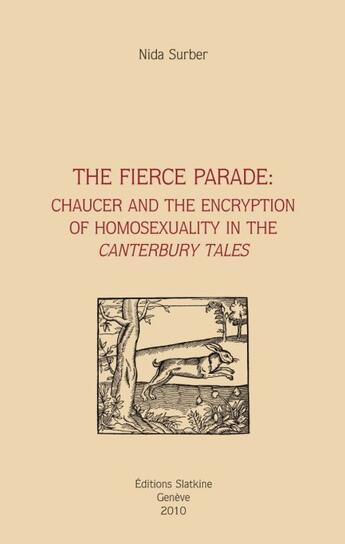-
Date de parution : 23/04/2010
-
Editeur :
Slatkine
-
EAN : 9782051021333
-
Série :
(-)
-
Support :
Papier
Résumé:
Far from wishing to startle the reader, this book intends to show the space that Chaucer's narrator carefully devotes to his cryptic depiction of homosexuality in the Canterbury Tales. This hidden discourse is here unearthed, thanks to the help of other languages than Middle English, ranging... Voir plus
Far from wishing to startle the reader, this book intends to show the space that Chaucer's narrator carefully devotes to his cryptic depiction of homosexuality in the Canterbury Tales. This hidden discourse is here unearthed, thanks to the help of other languages than Middle English, ranging from Old English, Latin and Ancient Greek, to the more contemporary languages, Italian, French of course, including dialectal forms thereof. Beyond the tolerance, social, religious and even sexual, usually ascribed to Chaucer's narrator, there is another logos which clearly states that homosexuality is, on the contrary, an elevated and even sanctified proclivity, sanctified by laws and usages far different from those of Church and society in Chaucer's own time. The Canterbury Tales do thus offer a double discourse: one which appears to be condemning homosexuality, as well as another one where it is praised. The obligation to encrypt such a logos is obvious, given the social contingences of the time. Indeed a strategy had to be devised in order to include the unutterable and this linguistic, cultural and secular strategy, masterfully embedded in Chaucer's text, is uncovered here. The homosexual figures, by far the majority of the pilgrims, are treated with the same lack of moral judgement that the narrator reserves for the few heterosexual figures, with reactions oscillating between the benign and the cynical, as even perfunctory readers of Chaucer would recognise. The present study offers a timely and necessary reassessment of the Canterbury Tales, an endeavour that, in our jargon, we tend to call "queering the text".
Donner votre avis















